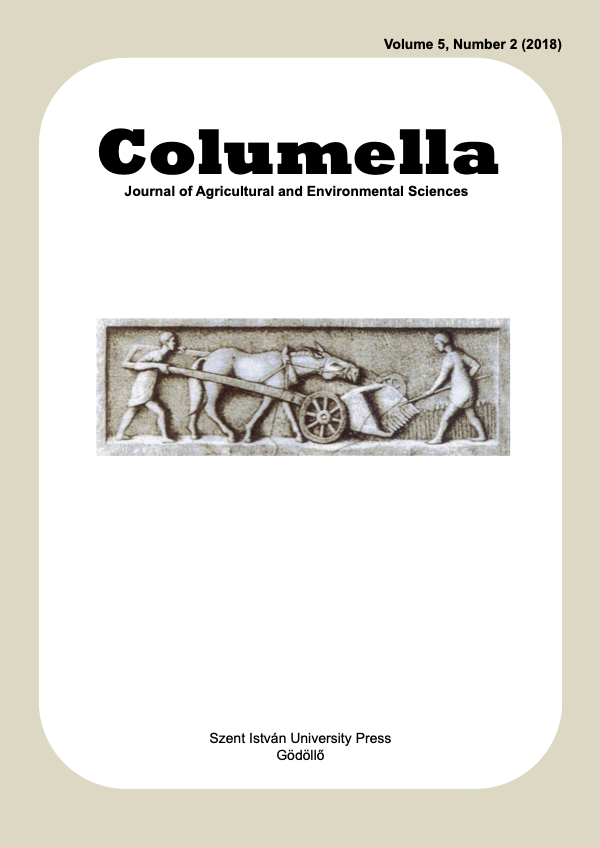Inoculation with Septoglomus constrictum improves tolerance to heat shock in tomato plants
DOI:
https://doi.org/10.18380/SZIE.COLUM.2018.5.2.7Keywords:
arbuscular mycorrhizal fungi, Septoglomus constrictum, heat shock stress, stress tolerance, tomato plantsAbstract
Arbuscular mycorrhizal fungi (AMF) are symbiotic soil fungi colonizing roots of about 80% of vascular plants. This symbiosis enhances the growth and survival of numerous plant species including vegetables; moreover, it offers some other benefits for the plants. This work aimed to study the impact of AMF on tomato plant tolerance to heat shock. Tomato (Solanum lycopersicum L.) plants inoculated or not with Septoglomus constrictum were placed in a commercial potting media at 26/22°C with 16/8h photoperiod for six weeks, then exposed to normal (26°C for 6h) or high temperature (42°C for 6h). Arbuscular mycorrhizal (AM) colonization rate, level of lipid peroxidation (malondialdehyde – MDA), hydrogen peroxide (H2O2) accumulation and antioxidative enzymes in roots and leaves were measured after the stress application. AM colonization rate of mycorrhizal plants was 73% under non-stress conditions and 68% under heat shock conditions while no mycorrhizal colonization found in non-AM treatments. MDA and H2O2 content substantially increased in leaves of all plants after exposure to the heat shock. Leaf and root peroxidase (POD), leaf catalase (CAT) and root superoxide dismutase (SOD) activities of mycorrhizal plants were enhanced compared to those in non-AM ones while the activity of leaf SOD and root CAT in mycorrhizal plants remained unchanged. Furthermore, there were significant decreases in MDA and H2O2 content in leaves of inoculated plants compared with non-AM ones under heat shock conditions. Our results indicate that AM inoculation can increase stress tolerance against heat shock by enhancing the activity of antioxidative enzymes. Further research is required to understand the mechanisms that contribute to heat tolerance.
Downloads
Published
Issue
Section
License
Copyright (c) 2018 Nguyen Hong Duc, Katalin Posta

This work is licensed under a Creative Commons Attribution-NonCommercial-NoDerivatives 4.0 International License.






